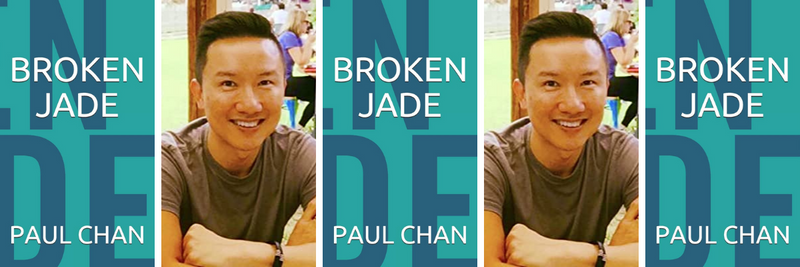A Timely and Entertaining New Asian-Australian Novel
Posted by Hendri Yulius on 1st Sep 2020
With an apparent rarity of Asian-Australian gay writing in Australia's traditional publishing industry, it is always an exciting moment whenever a new book about and written by an Asian gay man has emerged in Australia. It has also raised curiosity, and often nervousness, as to how 'Asian'-ness is presented in the book. When marriage equality is globally hailed as the progress of queer movements, the 'difference' between the West and the rest (including Asian countries) has also increasingly understood through the prism of homosexuality, making the former is associated with 'progressivity', while the latter is with 'backwardness'. Situated in this shifting landscape, a self-published new novel by Paul Chan, Broken Jade, follows the story of a mother and her gay son in navigating their different understandings of Asian identity, family, and sexuality to stay together. Raising from poverty in a small city Tenangan, Madeline Wong is an epitome of Chinese Malaysian's rags-to-riches tale. She does not only manage to be a self-made woman with her Imelda Marcos style: "dramatic make-up, helmet-like hairdo, and exquisitely tailored cheongsams and kebayas." Equally, she will do everything to 'save her family's face' from shame, a 'cultural trope' that has been rehearsed many times to understand either Asians' social conformity or obsession with material wealth. When her youngest son, Justin, comes out to her in a phone conversation, Madeline swears to herself to turn him into 'straight again'. This is precisely when her urgent mission begins, leading to an awkward encounter with Justin's white boyfriend, Robbie, and also, with a religious conversion therapy service in Sydney. Meanwhile, Justin has faced his battles as a gay Asian man living in a predominantly white society, navigating not only his homosexuality but also the many ways his racial identity generates self-insecurity and a sense of displacement. Intriguingly, several times Justin feels uneasy when other gay men seem to be sexually interested in Robbie, or when he is peculiarly disappointed when a stranger does not reciprocate his desire. Written in a fast pace with so many side characters come and go, although Chan succeeds in keeping readers hooked to the storyline, an in-depth exploration of the key characters' interior lives would have made the plot more solid, convincing, and contextual. For instance, Madeline's ambition of 'saving face' might be further explored through the local ethnic and social class dynamics, in which her minority status as a Chinese-Malaysian might have shaped her obsession to protect her family's reputation. Similarly, Justin's insecurity, hard work ethic, and attempts at becoming successful in career can serve as a window to delve into a gay Asian man's psyche in dealing with his double minority status. In my view, this kind of examination will help to detach the essentialisation of 'saving face' as inherently Asian culture. Overall, the whole process of acceptance throughout the novel is worthy of attention, as it dismantles the persisting stereotype that Asian society is intrinsically conservative. Paul Chan's timely and entertaining Broken Jade is an exciting gift for Asian gay men who look for stories through which they can see themselves being heard and portrayed. However, as one representation can never fully capture the breadth of gay Asian men's lived experience, greater diversity in Australia's publishing industry is still urgently needed.
Read and Reviewed by Hendri Yulius
